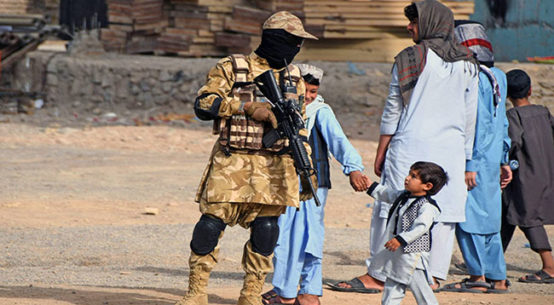
More than two-years in, the COVID-19 pandemic rages on with rising cases and deaths every day. A silent and more long-term pandemic occurring simultaneously is long COVID. The impact of long COVID has serious consequences for the future of humanity and should worry us all.
The recent Household Pulse Survey by the U.S. Centres for Disease Control shows that an average of 14% of US adults report long COVID symptoms. This is staggering because 93 million cases have been reported in the U.S. This implies that 13 million people in the U.S. have long COVID. Long COVID is also a global phenomenon: 2 million people in the United Kingdom, half million in Australia, and more than 100 million people globally.
Long COVID is a group of symptoms which some have who, on the surface, recover from COVID-19 infection. Its occurrence is more frequent in those who had severe illnesses and in people who are not vaccinated. However, even those without COVID-19 symptoms when infected could have long COVID too.
Examples of long COVID include loss of smell, loss of taste, brain fog, difficulty in remembering past events, tiredness on exertion, chest pain, shortness of breath, headache, heart palpitations, muscle pain, change in skin and hair color and lots more.
Long COVID varies in duration. It could last for as short as 2 weeks and as long as many months after recovery from COVID-19 infection.
Research published in the British Medical Journal even documents a female patient with persistent loss in smell 27 months after the initial COVID-19 infection. Therefore, it is unsurprising that some long COVID sufferers are unable to work. According to the Brookings Institution, long COVID could account for 15% of the 10.6 million unfilled jobs in the U.S.
With the rise in COVID-19 cases fueled by new variants, the number of long COVID cases will keep increasing. This is a wake-up call for global and country-level efforts to mitigate the impacts of long COVID. These are five ways to do so.
First, all global COVID-19 funds replenishment efforts must include plans to support long COVID interventions. These should go beyond COVID-19 prevention activities such as wearing of face masks, washing of hands with soap under running water and COVID vaccination.
Unfortunately, the 2022 “Break COVID Now Summit” co-hosted by Gavi only focused on replenishing funds to enable poorer countries to buy COVID-19 vaccines. Another way to ensure availability of funds for long COVID interventions before the next round of funds replenishment is ensuring that all COVID-19-related funding should include a component on long COVID. Such funding should cover local research on long COVID to determine the burden at country-levels, treatment and care for sufferers.
Second, some long COVID symptoms should be classified as disabilities. The U.S. Department of Health and Human Services recognises that long COVID can be a disability under the Americans with Disabilities Act if it substantially limits one or more major life activities. Other countries should do likewise.
Classifying long COVID symptoms as disabilities would enable sufferers to fully recover while being supported by the government or their employer. It would also protect the rights of sufferers from discriminations and stigmatization. For instance, a worker who has brain fog and difficulty in recalling past events requires time off work and mental health therapy to recover.
Third, update mental health care to include care of those living with long COVID. This should include updating standards of practice for mental health practitioners, mental health policies and laws. In addition, doctors should refer people with long COVID to mental health specialists.
This is relevant globally, especially in low and middle countries with poor awareness and services for mental health care. For example, in Nigeria, public perception of mental health is poor, qualified personnel are few, the law regulating mental health is from colonial times and care of those suffering from mental health disorders is mostly provided by unqualified personnel.
In 2019, I co-led the mental health in Nigeria surgery – the largest mental health survey in the country within the last 20 years. Our result showed that 70% of Nigerians say that mental health disorder is when the sufferer starts running around naked. Such wrong perception delays care and stigmatizes sufferers. One can imagine how long COVID sufferers with mental health disorders could be neglected in Nigeria.
Fourth, prioritise long COVID interventions in children because they are our future and long COVID could tamper with their abilities to be successful in life.
A systematic review of long COVID in children and adolescents shows a prevalence rate of 25.24%. The top five long COVID symptoms in children and adolescents are mood symptoms (16.50%), fatigue (9.66%), sleep disorders (8.42%), headache (7.84%), and respiratory symptoms (7.62%).
The thought of children and adolescents dealing with such conditions is disheartening. Their development and productivity are stifled. Therefore, paediatricians, parents and child social workers should be trained on providing the best long COVID care for children and adolescents.
Lastly, invest in nonprofits providing long COVID interventions because governments alone cannot cater for the huge backlog of sufferers. COVIDAid – the first long COVID Charity in the United Kingdom — has brought long COVID to the front burners of national discuss in the UK. It has provided support to more than 125,000 people via a web hub, held live events on the mental health impacts of COVID-19, launched new free long COVID courses and encourages voluntarism for long COVID.
Nonprofits play important roles in bridging gaps in social development. Having more of these types of long COVID nonprofits would ensure these achievements are replicated in other countries.
Long COVID is an existential threat to humanity. Globally, the 100 million long COVID sufferers are more than the population of Germany. There is fire on the mountain. We must consolidate global efforts to quench the fire.
Ifeanyi Nsofor is a public health physician from Nigeria. Dr. Nsofor is Director of Policy and Advocacy at Nigeria Health Watch and leads the organisations’ advocacy interventions. He is a leading advocate for universal health coverage in Nigeria.


